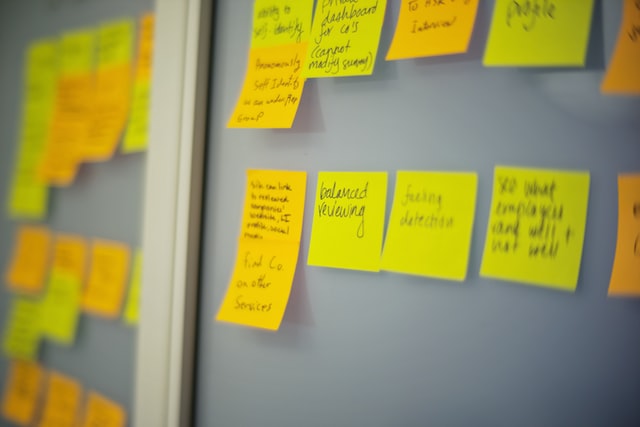25 Known Facts You Should Know About Creativity
What is creativity? How creative are we? What facts are worth knowing about creativity?
Creativity is a concept that can be approached from many sides. Nevertheless, most people classify themselves into two groups, creative and non-creative.
Would it really be that simple to define the concept of creativity?
What is the concept of creativity?
Creativity is based on novel ideas that create original, innovative things and objects. During problem-solving operations, the discovery of new connections creates a creative idea, a product.
In an innovative way, the creative person approaches the tasks to be solved in an unusual way. We can also characterize the creative person and the object of the work with the creative adjective.
It can manifest itself in any field, be it the arts, the sciences, or everyday life.
What characterizes a creative person?
Creativity is a complex and complex thing, made up of many factors. Our lives are diverse, so there is an almost endless repository of qualities characteristic of imaginative people.
However, there are some criteria that surround creative people:
- they have novel and above-average thoughts;
- have a problem sensitivity, they quickly notice hidden flaws;
- flexible, able to approach problems from several perspectives;
- original, able to give differently than average answers in one situation;
- resourceful and resourceful;
- have a desire for knowledge and a high degree of curiosity;
- they have initiative;
- they are characterized by strong mental and physical activity;
- they think independently, do not follow patterns;
- are able to make spontaneous decisions;
- they face situations of uncertainty as a challenge;
- persistent and hardworking;
- they are characterized by the exemption from compromise;
- they can feel the solution, they use their intuition.

Why is creativity so important these days?
In the 21st century, things are changing fast, so whoever has the flexibility will take the barriers more easily. Flexibility is one of the main components of creativity.
Continuous renewal brings with it the release of old duties and the birth of new solutions. It is necessary to look at our activities from another angle, this is one of the keys to success in our present lives.
In the past, a system operated for hundreds of years, for generations. Today’s trends show that one who is able to innovate continuously will be successful.
Continuous renewal requires problem-solving, which can only be effective if we think of more than one scheme.
The creative person can gain a great advantage because he is looking for several possible solutions to a problem. Let your thoughts soar and you can deviate from the usual solutions.
The decisions of an innovative person do not come from fear, as they dare to experiment and innovate, thanks to which they have different experiences than the average.
25 exciting facts about creativity
1. Who is the father of creativity theory?
Many researchers have dealt with creativity, and a wealth of theories have emerged on the subject. However, the name of JP Guilford (1897 – 1988) is worth mentioning.
According to Guilford, with creativity, we create ideas, coupled with divergent thinking, that are both new and useful.
In divergent thinking, we look for several possible solutions to the problem.
In contrast, convergent thinking is more about trying to come up with a single good solution.
2. Are we born with different creativity?
It is a gift born of us, it cannot be said that we are born with a different or exactly the same level of creativity.
The ability to be creative is there for everyone, the only question is how much that person realizes it. Anyone can become a creative person, this process depends on the decisions they make in their life.
3. Can creativity be measured?
In fact, it is difficult and impossible to get accurate data, or only from a certain segment. There are creativity tests, but they can only be used for sub-areas.
Each topic is different, different life situations can develop, everywhere different skills are needed to create.

4. What determines how creative someone is according to astrology?
When examining individual horoscopes, there are positions that assume creativity.
I emphasize here that they assume because only talking to that person gives an answer to how much you use your creativity.
One of the foundations of Chinese astrology is the doctrine of the five elements. Talents belong to each element, creativity belongs to the tree element. Anyone who has a wooden element in their formula has a stronger susceptibility to creativity.
An astrologer can draw the interviewer’s attention to the fact that creativity can be one of the keys to happiness.
5. Can Creativity show in anything?
In works of art, even in different thoughts. The common denominator is that the person approaches from a different perspective than their environment. This feature can be striking, highlighting it from the average.
The creative person is looking and curious, wanting to understand things. He does not accept commonplaces but goes after their reality.
6. What are the personality traits of a creative person?
Some qualities that characterize creative and innovative people:
- active, active but able to relax;
- can cling to known reality;
- he often dreams;
- able to move on the ground of imagination and imagination and reality at the same time;
- he loves his job passionately;
- respects authority but is also rebellious;
- the pursuit of change and the desire for freedom;
- independence.
7. What does divergent thinking mean?
Divergent thinking seeks as many possible solutions to a problem as possible.
Convergent thinking, by contrast, seeks only one hopeful answer.
A divergent-minded person is able to discover connections between seemingly independent, unrelated elements. This kind of different mindset is much more common in children.

8. What are divergent abilities?
- Flexibility: do not stick to proven solutions.
- Originality: trying out unusual ideas at first.
- Lightness: the freedom to draw conclusions.
- Sensitivity: to detect where there is a problem, to see the cause of the problem.
9. Creativity and times of day: who is most creative and why?
There is research that confirms that we are the most creative in our dreams.
There is nothing impossible in our dreams, at which point our imaginations can soar. Even during sleep, our brains do intense work, thanks to which the ideas will come the next day.
Maybe it’s not a coincidence to say, sleep on one!
10. Is it possible to develop creativity?
Yes, it can be improved, of course, but like everything else, developing creativity requires time and continuous practice.
The consequence of a serious energy investment has its steps, no matter what the area.
- The first step is to obtain the information and then process it.
- Then we systematize the data we get, then we develop a plan, and finally, we take the path of action.
This mechanism is characteristic of the process of all creative activity.
11. Do challenges really develop creativity?
As it turned out from the previous point, your creativity is trained through practice.
Combining knowledge from unknown fields also develops creativity. New situations create new experiences.
If you want to develop your creativity, make it a habit to overcome challenges.
12. Does a creative person need more energy?
The answer to the question is: you don’t need more energy.
Let’s look at an example of attachment. For those who cling to something, clinging itself takes away a lot of energy, while even blocking the possibility of development.
The creative person, on the other hand, does not insist but is open to things. He likes to develop, which, while it comes to investing in energy, as the previous few lines have shown, is also an attachment.
13. How much more creative are we in our childhood?
The level of childhood creativity has been examined in several studies. The conclusion was that non-creative behavior is shaped by the learning outcomes of society and the current organization of the school system.
Let’s see what percentage of our creativity we use at certain stages of our lives!
- Between 3 and 5 years of age: 98%.
- Between 10 and 15 years of age: 30%.
- At the age of 15: 12%.
- In adulthood: only 2%.

14. Why would it be important to teach children to think creatively?
Here are some examples of the positive benefits of creative thinking supported in childhood:
- their problem-solving ability increases;
- they become curious, thereby gaining knowledge;
- they will have a fantasy with unusual ideas;
- they will boldly represent their own position;
- question things accepted by others;
- they more easily embark on the path to self-realization in adulthood.
15. Can children’s playfulness be maintained with creativity?
Yes, since a child is inherently creative.
Let’s look at some principles from a parental perspective that can maintain childhood ease in later life:
- do not correct your mistake, but try to lead to a solution;
- do not be an educator, but give advice and experience;
- do not have rigid expectations of him;
- do not want to defeat him;
- if you think differently, don’t suppress your thoughts so you dare to use your creative power later;
- praise his productivity.
The good thing about life is that you can learn from anyone. Watch your child, talk to him or her to see if he or she says something that inspires you, so you can smuggle playfulness into your own life as well.
16. Does encouragement and praise help maintain creativity?
Yes, this can be established especially in childhood.
It is characteristic of today’s society that praise is lacking in the performance of duties, and in the case of incomplete problem-solving, negative criticism comes immediately.
It is very important that we praise our children because that is how we base our faith in ourselves. Without this, creativity cannot unfold in it.
Of course, it is important to keep the middle ground, because excessive praise is not beneficial either.
Recognition is good for everyone in the depths of their souls, so it’s good to keep that habit in adulthood. When we have successfully completed a task, we should also pat ourselves on the back.
17. What processes does creativity initiate in us?
By regularly applying creative qualities, you can embark on a path of self-improvement. The regular innovative activity develops openness and flexibility in us.
We become open to anything that can happen in life. This helps us to cope more easily in unexpected situations.

Because we are open and don’t think of just one solution, progress is also possible in recognizing problems. We will see where the error is within a given system.
Our creativity is also evolving, and we can even overwrite old mechanisms or create new structures.
18. What areas of life are most affected by creativity?
You can meet creative people in any area of life, not just in the artist world. It is generally true that imaginative thinking, a sense of style, flexibility, and ingenuity are also required to work innovatively.
In fact, creativity is found in all professions, so I don’t single out a single occupation.
The most important thing is to have ambition in whatever area of your life. It also brings with it the look of creativity.
19. Is spontaneity characteristic of a creative person?
Spontaneity requires flexibility and adaptability, these two qualities are also common in creative people.
Spontaneity, however, is disappearing from our present life because we plan everything, and our time is divided. Planning things creates control in our lives that put us within limits.
That’s why it’s worth bringing a little spontaneity into our everyday lives and not overdoing the tasks.
What will happen then? Nothing special, we just get new experiences.
20. Do weird ideas develop creativity?
The main essence of creativity is to create novel things, so weird ideas can be said to have a positive effect on our creativity.
Just let your thoughts flow. It’s worth writing down your ideas so you can recall them later.
The restraining force, in this case, is usually the opinion of the outside world. The advice is not to be ashamed of your ideas in front of others, take them on. If they talk you out of realizing your novel thoughts, don’t back down.
Focus on practical feasibility and experience your own creative energies!
21. Do the questions we ask ourselves help us to come up with creative solutions?
A topic can be approached from many sides, new things can be found in everything. Imaginative ideas are also born when we run new perspectives on ourselves.
You may want to create new questions and then look for answers to them. This article is also structured in this way, this method can be used in all cases.

22. What is the relationship between self-improvement and creativity?
Complex, unpredictable, and ambiguous situations develop our creativity. Meanwhile, our character is also evolving, so innovative solutions automatically bring with their individual progress.
Self-improvement and creativity, so go hand in hand, are a close connection between the two.
23. Who cares about creativity?
Man is basically a creative being, so in the depths of his soul, creativity is important to everyone. Why don’t we use this capability?
It’s mostly social habits and the school system that gets us used to imaginative approaches.
That’s why we dare to open up to novel things. One can live oneself to the fullest if one has independent thoughts and makes one’s own decisions. These, in turn, require creativity.
24. To what levels can creativity be developed?
Human life is about development, we can always learn something new. Based on this, there are no limits to the development of creativity.
Allow yourself to unfold, because that is how what is already within you can come to the surface.
25. Does the environment around us affect our creativity?
Yes, because you need to get inspired from somewhere. Nowadays, the internet has pushed the boundaries quite a bit, so there are opportunities to unfold.
The narrower environment also affects us, bringing something out of us. Does this serve our development or destroy us? It is important to examine this and observe our own role in the immediate environment.
It’s worth surrounding yourself with creative and inspiring people because they help your development.
25 Known Facts You Should Know About Creativity Read More »










